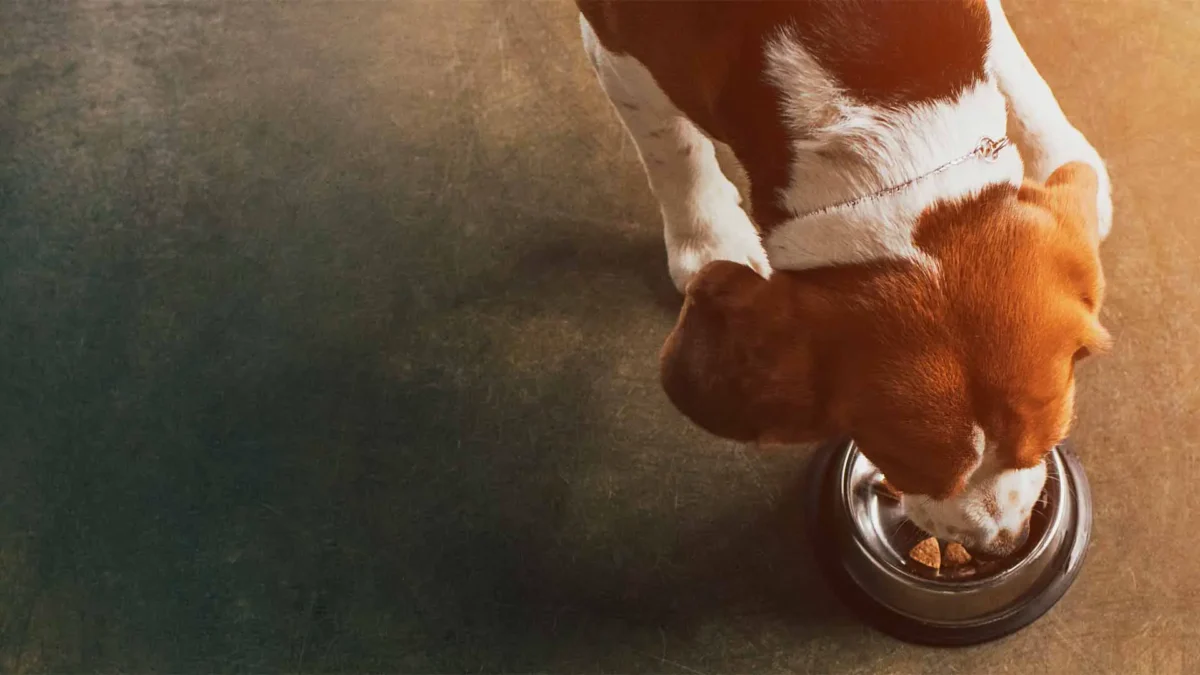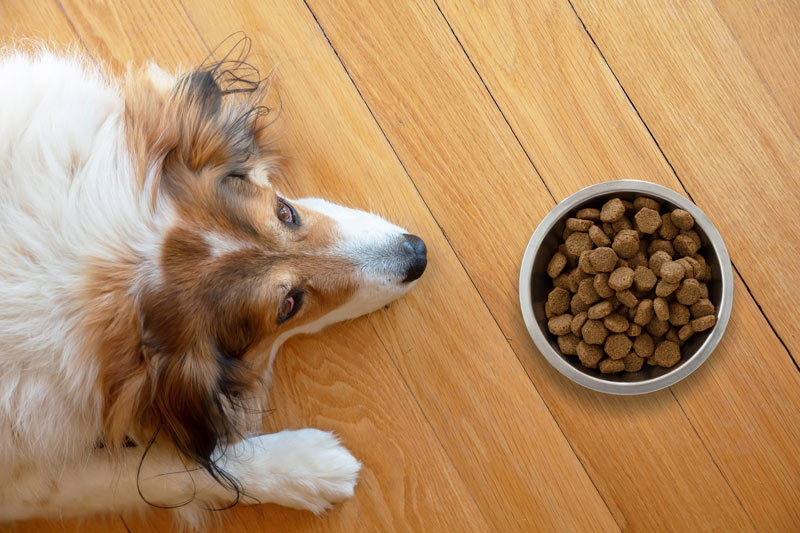Do you find yourself wondering why your dog only eats at night? It can be puzzling to see your furry friend refuse meals during the day but eagerly devour their food once the sun sets. In this article, we will uncover some strategies to help your dog develop a healthier eating routine. Let’s dive in!
How to Make Your Dog Eat at Different Times of the Day
This section will provide you with measures to encourage your dog to consume multiple meals throughout the day. By implementing these strategies, you can ensure your dog receives balanced nutrition and maintains a healthier eating pattern.
Food Quantity Control
Try gradually reducing the quantity of food your dog consumes during their nightly meal. If you usually feed them one cup of dog food at night, start by reducing it to three-fourths of a cup for a few days. Observe their reaction during this adjustment period.
Dogs have an innate sense of when they need to eat their next meal, but they don’t possess the ability to control portion sizes. By reducing the meal size at night, your dog will feel slightly hungry during the first half of the day. You can take advantage of this by offering them a half-meal portion around midday. With consistent repetition, your dog will gradually adjust to two meals a day, one during the daytime and the other at nighttime.
Step-Wise Preponing of the Meal Time
In case the portion control method doesn’t yield the desired results, you can try preponing your dog’s dinner time gradually. Begin by shifting their mealtime 30 minutes earlier every two days.
For example, if your dog usually has dinner at 9 PM, feed them at 8:30 PM for a couple of days, then at 8 PM for the next 2-3 days, and so on. This gradual adjustment will help align their digestive cycle without causing any abrupt changes that could be uncomfortable for them.
Free-Feeding Mode During Daytime
Consider experimenting with a free-feeding mechanism during the daytime. Since your dog prefers meals at night, they may not be inclined to eat the freely available food during the day initially. However, the presence of tasty treats might entice them to nibble on food during the day. This may reduce their appetite for additional meals at night.
If the previous methods don’t yield the expected results, this idea could be worth trying.
Stimulate Your Dog’s Appetite
There are several proven methods to stimulate your dog’s appetite during the morning or daytime.
Mix their dry kibble with warm water: If your dog is a picky eater, try mixing their dry kibble with warm water. This enhances the aroma of the food, making it more appealing, and aids in better digestion.
Engage in morning activities: Take your dog out for a walk and engage in outdoor activities during the morning. This will increase their calorie burn, making them hungry during the day. Additionally, it presents an opportunity for quality bonding time between you and your furry companion.
Add diced vegetables to their meals: Enhance your dog’s meal with fibrous and vitamin-rich diced veggies like cabbage or lettuce. This addition promotes a healthy digestion cycle and adds variety to their diet.
Consider bone marrow broth: Your dog will relish their daytime meal with the addition of a bit of bone marrow broth. This tasty addition not only adds flavor but also provides additional nutrients.
Frequently Asked Questions
Q: Will changing my dog’s eating routine affect their overall health?
A: No, changing your dog’s eating routine will not negatively impact their health. In fact, establishing a regular eating schedule promotes healthy digestion and can prevent issues such as obesity or gastrointestinal problems.
Q: How long will it take for my dog to adjust to a new eating routine?
A: The time it takes for your dog to adjust to a new eating routine may vary. Some dogs adapt quickly within a week, while others may take a little longer. Patience and consistency are key when implementing changes.
Q: Should I consult a veterinarian before making changes to my dog’s eating routine?
A: It is always a good idea to consult with a veterinarian before making any significant changes to your dog’s diet or routine. They can provide personalized guidance based on your dog’s specific needs.
Conclusion
Understanding why your dog only eats at night is the first step in helping them develop a healthier eating routine. By implementing the strategies mentioned in this article, such as food quantity control, step-wise preponing of mealtime, free-feeding during the daytime, and stimulating your dog’s appetite, you can gradually shift their eating habits to a more balanced schedule. Remember, it’s essential to monitor your dog’s response to these changes and consult a veterinarian if needed. Your dog’s well-being is our top priority at Pawsoha.
For more information on dog care and nutrition, visit Pawsoha.

